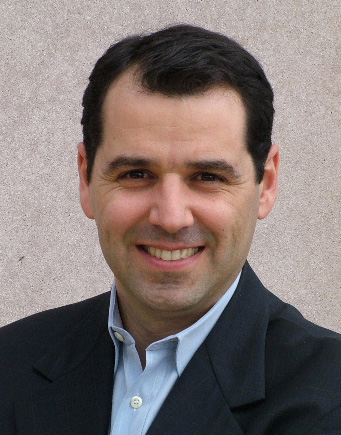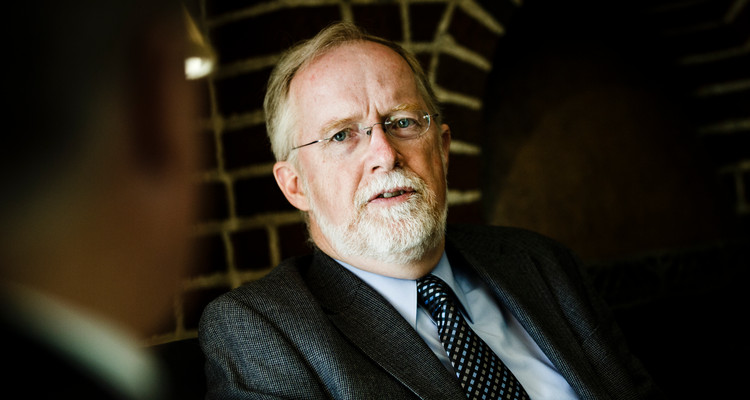The seventh annual dinner in the Higher Calling series introduced a St. Thomas audience of more than 100 to meet entrepreneurs from the Economy of Communion (EOC), a worldwide association of companies who share a set of values inspired by their roots in the Focolare movement. EOC philosophy emphasizes creating organizations that view business transactions not as ends in themselves but as a means for creating respectful relationships, solidarity – especially with the poor – community, generosity and a culture more committed to “giving” than to “having.”
The April 14 event, “The Entrepreneurial Vision of the Economy of Communion: Creating a Business Where All Can Flourish,” featured John Mundell and Nicola Sanna, both founders of EOC businesses in the United States, and John Gallagher, Ph.D., who, with Jeanne Buckeye, Ph.D., of the University of St. Thomas, has researched and written about the EOC.
The EOC and its 850 participating businesses worldwide have drawn the interest of entrepreneurs, economists and scholars through their unique focus on business management and culture and their solidarity with the poor. The centrality of relationships in the workplace – with customers, clients, financiers and society at large – is a key element in the EOC way of thinking. Personal growth and development, cultivating workplace harmony, creating meaningful work and sharing profits with the poor are also key to their approach.
Buckeye, who co-wrote with Gallagher the recently released Structures of Grace, The Business Practices of the Economy of Communion, explained that EOC businesses operate as for-profit enterprises, competing in the marketplace alongside other, more traditional businesses.
“Their hope is that through ethical practices and the spirit of community they can contribute to greater unity, or communion, in the world,” Buckeye said. “Like the Focolare ecclesial movement in which EOC has its roots, they focus on dialogue as a method for building bridges and relationships of fraternity among individuals, peoples and cultural worlds.”
The Higher Calling series is a collaboration between the Veritas Institute, the John A. Ryan Institute for Catholic Social Thought and the Habiger Institute for Catholic Leadership of the Center for Catholic Studies at the University of St. Thomas. This annual event convenes thought leaders in various disciplines to discuss and explore the intersection of meaning and business.
Read more from Perspectives.





